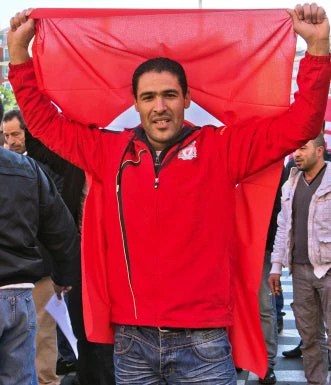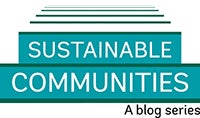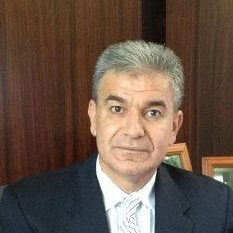 I just returned from Tunisia, my first ever visit to this beautiful country. It was a touching experience as it is the birth place of the modern Arab Revolution that started in late 2010. Sadly, many of what are called “Arab Spring” countries are now bogged down in terrible and destructive wars that have devastating effects on their people, economy and infrastructure.
I just returned from Tunisia, my first ever visit to this beautiful country. It was a touching experience as it is the birth place of the modern Arab Revolution that started in late 2010. Sadly, many of what are called “Arab Spring” countries are now bogged down in terrible and destructive wars that have devastating effects on their people, economy and infrastructure.
I saw a different story in Tunisia. A country full of life, energy, debate and above all, hope for the future. My favorite conversation is always with cab drivers, as they often reflect the real mood in the street. People are hopeful and optimistic about the future. They are glad that Tunisia was saved and that their country, while its democracy is still an infant (probably now toddler), is moving forward.
One of the cab drivers told me he has a University degree but could not find a job. He is working as a cab driver to save money to open a new business in selling medical equipment. He wants to borrow but banks will not lend him as he has no credit history. Therefore, he is working day and night to save the money he needs to open the business. My conversation with this driver reminded me of the famous book by Hernando De Soto, “Why Capitalism Succeeded in the West and Failed Everywhere Else”. It is about the fact that Western countries were able to establish property rights regimes, financial infrastructure, and rule of law to enable people to borrow money using land and property as collateral, to open new businesses and expand existing ones.
This is exactly why I was visiting Tunisia. The government of Tunisia wants to modernize and computerize their cadastre and property registration system, one of the fundamental pillars for enabling the use of land and property titles for collateral lending. I felt there was a very strong commitment from the government for this program. Clearly, this by itself will not be enough, as the other pieces need to be in place as well; a strong financial sector, rule of law that will enable contract enforcement and a clean and transparent judiciary system.
The Asian tigers started these programs in the late 80s and 90s of the last century. Eastern Europe and Turkey started such programs in the late 90s and early 2000s. Many Latin American Countries have done the same. Rwanda completed a land titling program and similar programs are being undertaken in several Africa countries.
Research from the Thailand land titling program shows that land titles contributed to improving agricultural productivity, increased lending by Banks using land and property titles as collateral, made credit cheaper, and increased government revenues from land taxes and registration fees. Research showed similar results in other countries. In fact, in Laos, research showed more women than men opened new businesses by borrowing from Banks using their land titles.
While many Arab countries have existing systems for registering property transactions, the system is very inefficient and outdated. In most countries, it takes many weeks (and sometimes many months) to register property transactions. Also, there are lots of laps and overlaps, and sometimes multiple titles on properties, so that banks often do not trust land titles. Research has shown that access to land is one of the main constraints for investment in many Arab countries. Sadly, with some exceptions, most Arab countries have not taken serious efforts to modernize and computerize their property registration systems.
Back to Tunisia, if the country manages to implement this program, it could be the first Arab country to do so. Once again, it could start the “other” Arab revolution by transforming the economy to generate jobs and putting in place a system that meets the expectations of the young people who started the first revolution.



Join the Conversation